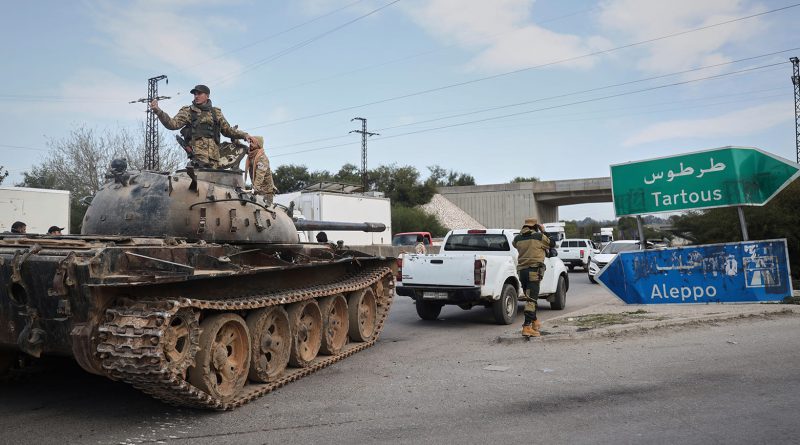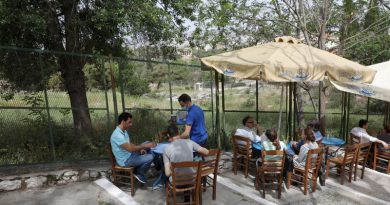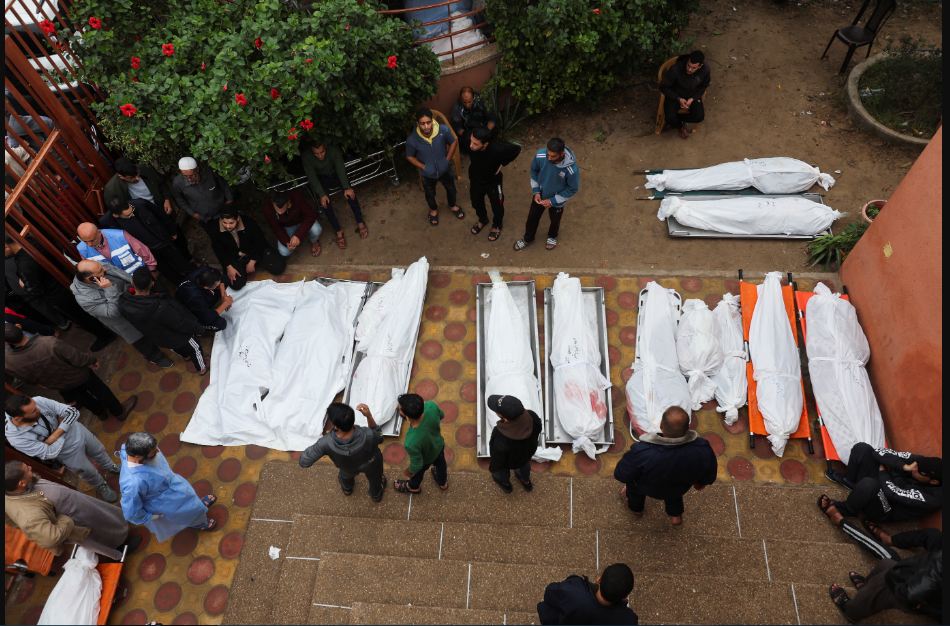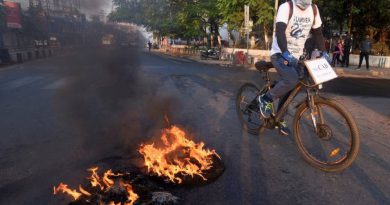OPINION: Iran, Hezbollah, and Syria—The Disinformation Campaign You’re Not Seeing
Iran, Hezbollah, and Assad loyalists have launched a well-coordinated disinformation campaign to portray the situation as a sectarian massacre.
In light of recent misinterpretations of my comments, I feel compelled to clarify my stance on several key issues. Some have accused me of supporting jihadist groups in Syria or endorsing acts of ethnic cleansing and massacres against the Alawite minority on the Syrian coast. These claims are entirely unfounded, and I want to set the record straight.
Consistent Principles on War and Self-Defense
From the very beginning, I have consistently supported the right of nations to defend themselves against aggression. In 2001, I fully backed the United States’ decision to retaliate against al-Qaeda and the Taliban following the 9/11 attacks because it was a justified response to an unprovoked act of war. However, I did not support the U.S. invasion of Iraq in 2003, as Iraq posed no imminent threat at the time.
Similarly, when Hamas launched its attacks on October 7, 2023, I unequivocally supported Israel’s right to defend itself, just as I supported Israel’s actions against Hezbollah in Lebanon. I recognize that war is never clean, and civilian casualties are an unfortunate and tragic reality. Anyone who believes in the possibility of a “clean war” is ignoring history and human nature. Even in the most “civilized” parts of the world, such as Europe, the 20th century bore witness to some of the worst massacres and genocides in history.
Modern warfare is fought not only on the battlefield but also in the realm of information. The manipulation of media, particularly through social media, has become a powerful tool. We saw this when Hamas claimed that Israel had bombed hospitals and killed hundreds of civilians, claims that, upon closer inspection, were exaggerated or entirely fabricated. Propaganda is an inseparable part of war, and recognizing this is crucial in understanding modern conflicts.
The Syrian Conflict and My Perspective on Ahmad al-Shar’a
Much of the controversy surrounding my recent comments stems from my discussion of Ahmad al-Shar’a, also known as Abu Muhammad al-Jolani, and the ongoing conflict in Syria. To be clear: I do not view al-Shar’a as ISIS. While he was originally part of al-Qaeda in Iraq before it became the Islamic State of Iraq, he later split from the organization when he moved to Syria.
Since 2018, I have spoken with multiple intelligence officials who confirmed that al-Shar’a had been cooperating with Turkish intelligence as early as 2013 and later provided valuable intelligence to Western agencies, including those of France and the United States, in the fight against ISIS. His motivation may not have been purely altruistic, he saw ISIS as a rival, but his actions nonetheless contributed to the fight against one of the most brutal jihadist groups in history.
I have publicly acknowledged that I see elements of my own journey in his transformation. I, too, was once a committed jihadist until I saw the light and shifted my perspective to focus on geopolitical strategy rather than sectarian or ideological allegiances. Today, my positions are determined by strategic interests, not religious or sectarian affiliations.
Why I Support the Current Syrian Government Over Assad
Between al-Shar’a’s government and the Assad regime, I believe the former offers a better path forward for Syria. While al-Shar’a has a controversial past, his current trajectory suggests a willingness to reform. Unlike the Assad regime, which has kept Syria trapped in a failed socialist Arab nationalist system, his administration has demonstrated a commitment to economic modernization. The most developed areas in Syria today—Idlib, Jisr al-Shughur, and Sarmada—show clear progress, in contrast to the stagnation of Damascus, Aleppo, Homs, and Hama.
Critically, I reject the notion that what is happening on the Syrian coast is an organized ethnic cleansing campaign. Instead, it is a military operation aimed at dismantling remnants of the Assad regime, whose security forces have been targeting not only Sunni opposition members but also Alawites who are seen as traitors.
Reports indicate that some of the atrocities being widely shared on social media were, in fact, carried out by former regime officers—Alawites exacting revenge on their own community members for siding with the new government. Other reports suggest that Iranian and Hezbollah-backed Assad loyalists are fueling chaos to destabilize the current government. The Syrian government under al-Shar’a has deployed significant manpower to block roads and prevent large-scale sectarian revenge attacks, particularly from Sunni militants who see this as an opportunity for retaliation.
Propaganda and Disinformation in the Syrian Conflict
Iran, Hezbollah, and Assad loyalists have launched a well-coordinated disinformation campaign to portray the situation as a sectarian massacre. Many of the images and videos circulating on social media are, in reality, old footage from ISIS-era Iraq and Syria. Claims that Christians are being systematically targeted are also false, there have been no reports of Christian casualties in this conflict.
Additionally, many of the “atrocity” videos currently being used to condemn the new government are actually recycled footage of massacres committed by the Assad regime itself. The goal of this propaganda is clear: to manipulate Western audiences into believing that Syria is descending into sectarian genocide, thereby pushing Syria further into the Iranian-Russian-Chinese geopolitical axis.
A Call for Justice and a Rational Perspective on Syria’s Future
I do not deny that war crimes and atrocities have occurred in the Syrian conflict. I call upon the government of President Ahmad al-Shar’a to ensure accountability and bring those responsible to justice. However, we must recognize that this is not a case of systematic ethnic cleansing. The reality on the ground is far more complex, with various factions—Sunni and Alawite alike—engaging in revenge killings and power struggles.
Western observers must avoid falling into the trap of Iranian and Hezbollah propaganda. Syria has an opportunity to move away from the Russian-Iranian-Chinese sphere of influence and integrate into the Mediterranean and Gulf economic frameworks. It is in the best interest of Syria, the region, and the world that we support efforts to stabilize the country, promote economic recovery, and prevent it from becoming another puppet state for Tehran, Moscow, or Beijing.
A Geopolitical, Not Sectarian, Perspective
To those who accuse me of reverting to my “jihadi roots,” I ask: how could someone who opposed both Hamas and Hezbollah—a Sunni and a Shia militant group—be labeled as a jihadist sympathizer? My approach is based purely on geopolitical logic, not religious bias. I support what makes sense for the people of the Middle East, whether they are Muslim, Christian, Jewish, Sunni, or Shia, liberal or conservative.
What is happening in Syria is not a black-and-white sectarian war but a geopolitical realignment. We must approach it with rationality, not emotion, and recognize the broader stakes involved. Let us not allow misinformation and propaganda to cloud our understanding of the realities on the ground.
Disclaimer: Views expressed by writers in this section are their own and do not reflect Milli Chronicle’s point-of-view.



